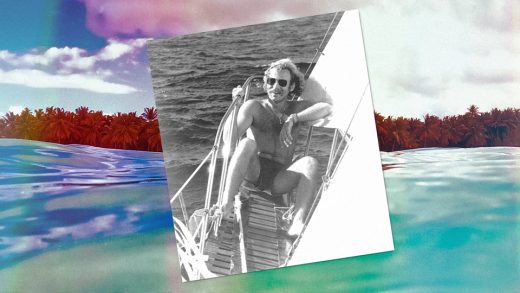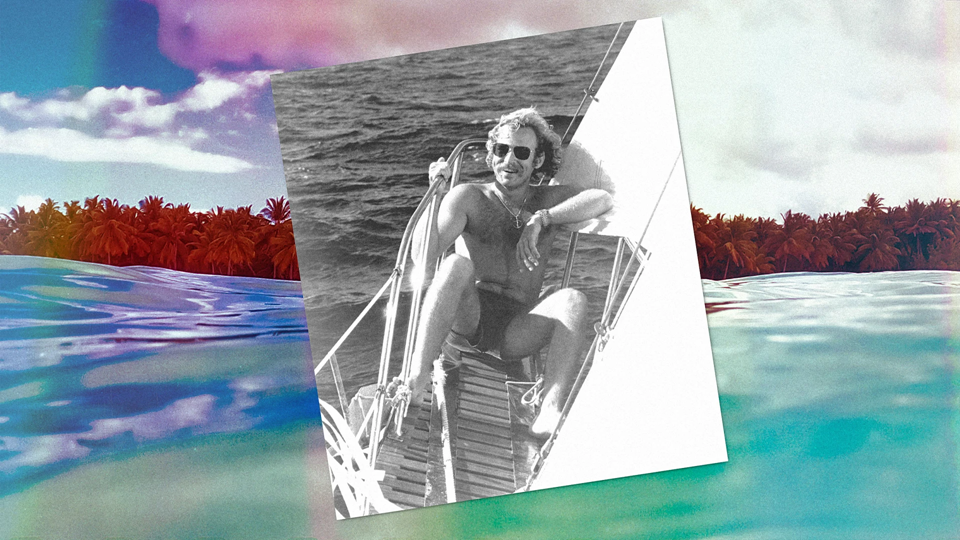Yeti’s new film is a rare look at Jimmy Buffett and the laidback lifestyle of 1970s Key West
Yeti’s new film is a rare look at Jimmy Buffett and the laidback lifestyle of 1970s Key West
‘All That Is Sacred’ is a snapshot of the laidback artists including Buffett, Tom McGuane, Jim Harrison, and Richard Brautigan.
BY Jeff Beer
When Jimmy Buffett died at his home in Sag Harbor, New York, last year, he wasn’t supposed to be there. The legendary musician passed on September 1, 2023, but had been scheduled to be about 2,000 miles to the west at the Telluride Film Festival for the premiere of the short documentary film, All That Is Sacred.
Directed by Scott Ballew, the film is a portrait of Buffett and his group of friends in Key West, Florida, back in the late 1960s and ‘70s. It shows the balance between the work and leisure life of writers and musicians including Tom McGuane, Jim Harrison, Guy de la Valdéne, and Richard Brautigan, and their shared obsession with fishing. It’s a combination of interviews with those of the group still living, shot over the past few years, and footage from a little-seen 1973 doc called Tarpon, by de la Valdéne and Christian Odasso. Now, outdoors brand Yeti, which produced the new film, is launching it for free on YouTube and across its digital channels.
At just 34 minutes, All That Is Sacred is a brief but wonderful window into an incredible group of friends at a unique time and place. Writer Carl Hiassen says in the film, “Having all of that collection of talent in Key West, that was the equivalent of the Round Table at the Algonquin. It quickly became legendary.”
Yeti head of marketing Bill Neff says the idea for the film came from Ballew, who was interested in taking a closer look at McGuane’s Key West fishing days.
“Honestly, it wasn’t like we set out to do a film on American literature,” says Neff. “I actually don’t think it came about in any different way than any of our films might come about. It’s just a level of curiosity around characters that have interesting stories behind them.”
Yeti has been making short doc films for almost a decade as part of its ongoing “Yeti Presents” series, which tells the stories of some of its 170 brand ambassadors across fishing, hunting, surfing, cooking, and more. Last year, CEO Matt Reintjes told me that these ambassadors are key to the brand’s storytelling. They help Yeti build deep relationships and credibility within the outdoors and sport communities that have allowed the company to grow from a $500 million brand to $1.5 billion since 2015.
Neff says this film represents a new variation of storytelling for Yeti. “You could see it as a film for the fishing community; but ultimately, if you think about who Yeti is and the building of depth, it’s about the gathering of people and the friendships of people,“ he says. “We drop one like this in there to make people maybe stretch their minds on what we’re capable of doing, and the stories we’re capable of telling.”
Friendship and fishing
McGuane, now 84, lived in Key West from 1969 to 1978. Now based in Montana, the famed writer is perhaps the film’s main character. Two of his most famous works—Ninety-two in the Shade and Panama—are set in Key West, and his book of essays, The Longest Silence, is arguably some of the best writing on fishing. Of the group featured most heavily in the film, he is the only one still alive. Harrison died in 2016, and de la Valdéne last year.
McGuane was in Telluride for the premiere last year, and says he wasn’t sure how Ballew was planning to weave Tarpon together with the story of his friends. “The project just seemed to arrive in my life,” says McGuane in an email. “I don’t think I knew what it was for, or why Scott had contacted me. It wasn’t until I saw an early draft that I understood that Scott had a vision for the material all along.”
In the film, there’s a scene where McGuane is at home in Montana looking through old photos with his wife, Laurie. He says he hates old photos, and that he’s not nostalgic. Seeing the film hasn’t changed that for him. “At this time of my life, I’m no more nostalgic than ever, but I have plenty of heartaches about my missing friends, family, and dogs,” he tells me during a recent interview. “When I saw the party scene in which the fishing was discussed, the first thing I noticed was my bird dog, Molly, who I took to graduate school more than a half century ago. And there were the friends who, like me, thought we’d live forever. I was reminded that I’ve had a lucky life, but I do miss those days.”
In All That Is Sacred, a story is told about the filming of Tarpon, and how it was often tough to get McGuane, Harrison, and the others interested in being on camera. They didn’t want to somehow pollute the actual experience of fishing. Now, a half century later, not only are they on film, but one produced by a brand that makes coolers. I asked McGuane how he feels about this story being told as a piece of brand content. “I don’t have a feeling about the film being Yeti brand content,” he says. “But given that it’s such a lovely piece of work, I hope it isn’t dismissed as a commercial.”
Open Minds
At one point in the film, Harrison references an F. Scott Fitzgerald quote about living life with a diminishing portfolio of enthusiasm. “So you try to seek out in life, moments that give you this immense jolt of electricity,” Harrison said. “It’s a tranquilizer better than any chemical tranquilizer. So you try to have something that gives you that electricity and freshens up your feeling about being alive.”
For Harrison, McGuane, Buffet, and the others, that electricity came from fishing, sure. But the film makes clear that there was just as much voltage in the friendships forged in those Key West days.
Neff says that even though the film is different from anything Yeti’s ever done, it still embodies its ultimate goal. “??A lot of brands in this world want to change your mind, but with our films, all we’re trying to do is open people’s minds,” he says. “Here, it was helping to tell a story that might inspire other people to go pick up a Tom McGuane book and read it for the first time. Or pick up a Jim Harrison book and read it for the first time.”
Or press play on “A White Sport Coat and a Pink Crustacean” for the first time.
“And then who knows where that takes them in their life.”
ABOUT THE AUTHOR
(6)



